39 food labels nutrition information
Food Labeling & Nutrition | FDA May 16, 2022 · Food labeling is required for most prepared foods, such as breads, cereals, canned and frozen foods, snacks, desserts, drinks, etc. Nutrition labeling for raw produce (fruits and vegetables) and... The Basics of the Nutrition Facts Label - Academy of Nutrition and ... The following is a quick guide to reading the Nutrition Facts label. Step 1: Start with the Serving Size Look here for both the serving size (the amount people typically eat at one time) and the number of servings in the package. Compare your portion size (the amount you actually eat) to the serving size listed on the panel.
The New Nutrition Facts Label | FDA - U.S. Food and Drug ... Apr 13, 2022 · The U.S. Food and Drug Administration (FDA) has updated the Nutrition Facts label on packaged foods and drinks. FDA is requiring changes to the Nutrition Facts label based on updated scientific...
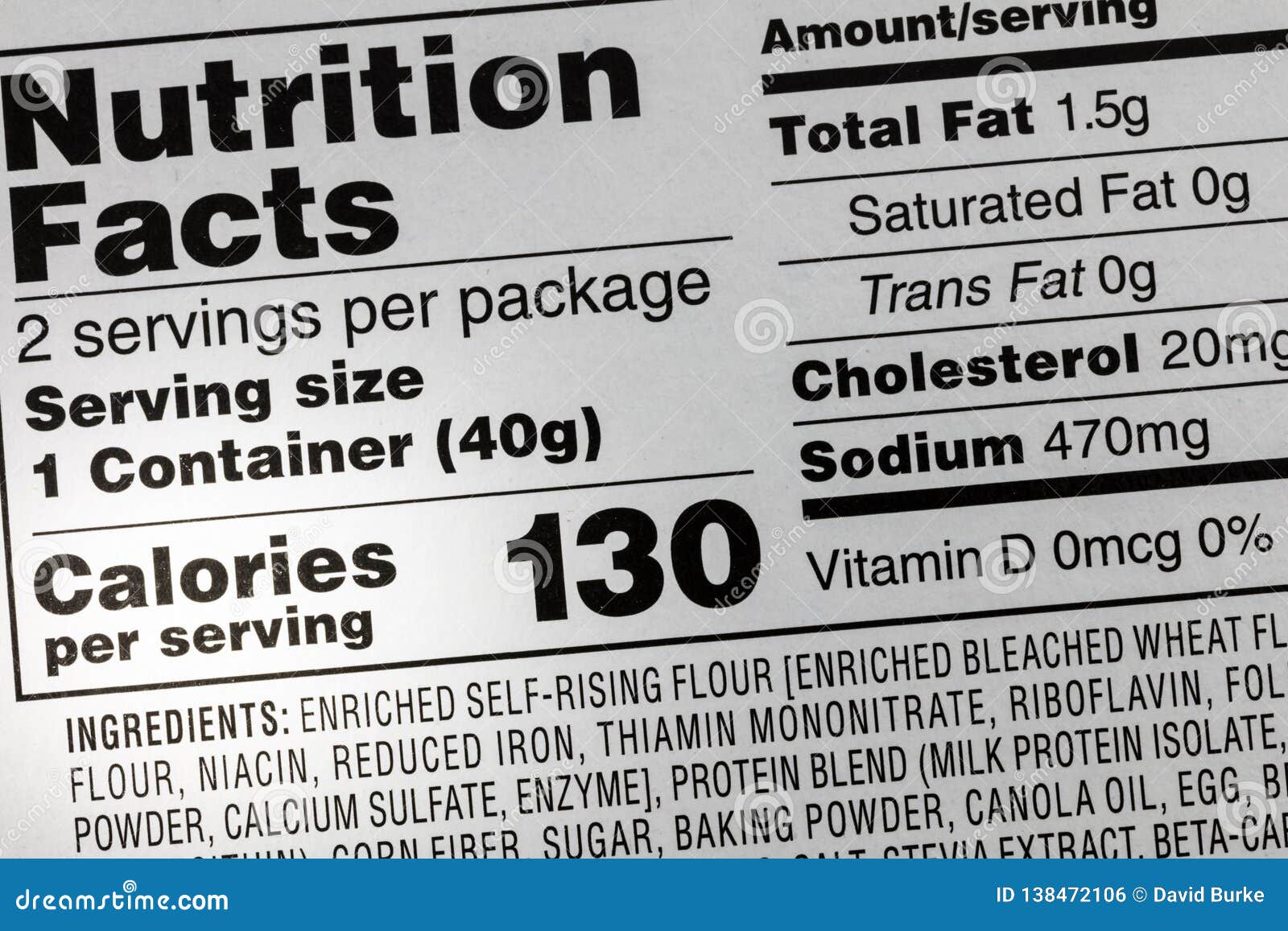
Food labels nutrition information
Food Labels: Fat & Cholesterol | Home & Garden Information Center The 2015 Dietary Guidelines for Americans recommends the following intakes of fat and cholesterol every day: total fat—20 to 35% of calories, depending on age and gender (65 grams for the 2,000-calorie intake level used in the Daily Value)*. saturated fat—less than 10% of calories**. trans fat— keep as low as possible. Looking at labels - British Nutrition Foundation They will allow you to make comparisons between products that are high, medium or low in fat, saturated, salt and sugar. Looking at the nutrition information on food labels can help you make healthier choices. Allergens will be listed and emphasised in the ingredients list. Front of pack label The Eatwell Guide. PDF Teacher's Guide: Food Labels (Grades 6 to 8) - KidsHealth Food Labels Food companies spend a lot of time and money convincing people to buy their products. Because it's so easy to fall for misleading claims on the packaging, it's important for students to learn to think critically about what's inside the packaging. The Nutrition Facts food label can help them do that.
Food labels nutrition information. How to Read Food Labels Without Being Tricked - Healthline Still, processed foods that are labeled low-carb are usually still processed junk foods, similar to processed low-fat foods. Made with whole grains. The product may contain very little whole ... Nutrition Facts and Food Labels - Academy of Nutrition and Dietetics The Basics of the Nutrition Facts Label. Get to know the basics of the Nutrition Facts label, and understand the parts and pieces, from serving size, total calories and fat to percent of Daily Values. How To Read Food and Beverage Labels - National Institute on Aging Although frozen and canned fruits and vegetables have food labels, fresh varieties often do not. You can find nutrition information for fresh vegetables and fruits on the USDA website. Or you can call the U.S. Department of Agriculture's Food and Nutrition Information Center at 301-504-5414. Understanding percent Daily Value (% DV) How to Use the Nutrition Fact Label, Eat Right, NHLBI, NIH Get enough of these: potassium, fiber, vitamins A and C, calcium, and iron Use the Percent Daily Value (% DV) column when possible; 5% DV or less is low, 20% DV or more is high Visit the Smart Food Shopping page and learn how the label can help you choose foods lower in calories, fat, and added sugar to help maintain a healthy weight.
Nutrition information on food labels: Is it read and understood? However, a recent EU-funded research project, FLABEL (Food Labelling to Advance Better Education for Life) has shown that on average 85% of products contained nutrition information on the back of the pack and around 48% on the front. 1. Various labelling schemes are available as governments, food manufacturers, retailers, and health and ... How to understand food labels | Eat For Health The Nutrition Information Panel on a food label offers the simplest and easiest way to choose foods with less saturated fat, salt (sodium), added sugars and kilojoules, and more fibre. It can also be used to decide how large one serve of a food group choice or discretionary food would be and whether it's worth the kilojoules. How to Understand and Use the Nutrition Facts Label | FDA - U.S. Food ... The information in the main or top section (see #1-4) of the sample nutrition label (below) can vary with each food and beverage product; it contains product-specific information (serving size, calories, and nutrient information). The bottom section contains a footnote that explains the % Daily Value and gives the number of calories used for genera... Nutrition information panels - Food Standards Nutrition information panels (NIP) on food labels provide information on the average quantity of energy in kilojoules or in kilojoules and kilocalories and these nutrients: protein fat saturated fat carbohydrate sugars sodium - a component of salt. A NIP will include information about other nutrients if a claim is made.
Food label reading guide | Nutrition Australia Food and drink labels will include information about the product, where and when it was made and a statement of ingredients, as well as any warnings or allergen statements. Most food or drink packages have a Nutrition Information Panel (NIP) which tells you the quantity of various nutrients a product contains per serve and per 100g or 100 ml. Food labels - NHS Nutrition labels are often displayed as a panel or grid on the back or side of packaging. This type of label includes information on energy (kJ/kcal), fat, saturates (saturated fat), carbohydrate, sugars, protein and salt. It may also provide additional information on certain nutrients, such as fibre. Food Labels | Nutrition.gov The U.S. Food and Drug Administration (FDA) has updated the Nutrition Facts label on packaged foods and beverages with a fresh design that will make it easier for you to make informed food choices that contribute to lifelong healthy eating habits. What's in a Name? What Every Consumer Should Know About Foods and Flavors How Do You Know Your Food's Nutrition Facts Label Is Accurate? NIST's measurements are accurate to within 2% to 5% for nutrient elements (such as sodium, calcium and potassium), macronutrients (fats, proteins and carbohydrates), amino acids and fatty acids. As you may have noticed, most of your favorite food items have recently updated their nutrition facts labels.
Understanding Food Labels - The Nutrition Source The Nutrition Facts Label The Nutrition Facts label is overseen by the U.S. Food and Drug Administration (FDA) and was first mandated under the Nutrition Labeling and Education Act of 1990 to help consumers make quick, informed food choices. It has undergone revisions, with the latest update released in 2016.
Food Labels Explained: Nutrition Information Labels - Keto Foods Nutritionists recommend choosing foods with a high % daily value of dietary fiber, vitamin D, Calcium, Iron and Potassium, and with a low % daily value of saturated fats, salt, and added sugars. Nutrition and Guidelines Now that we know how to properly read and understand food labels, there is only one more detail that we should know.
Nutrition facts label - Wikipedia The nutrition facts label (also known as the nutrition information panel, and other slight variations) is a label required on most packaged food in many countries, showing what nutrients and other ingredients (to limit and get enough of) are in the food. Labels are usually based on official nutritional rating systems.
Nutrition labelling | Food Standards Agency Mandatory information. When providing nutrition information, you are required to declare: energy value. amounts of fat, saturates, carbohydrate, sugars, protein and salt. The content of the mandatory nutrition declaration can be supplemented with an indication of the amounts of one or more of the following: monounsaturates.
Reading Food Labels (for Parents) - Nemours KidsHealth A food with 5% or less of a nutrient is low in that nutrient. A food with 10%-19% of a nutrient is a good source of that nutrient. A food with 20% or more of a nutrient is high in that nutrient. The information on food labels is based on an average diet of 2,000 calories per day.
Learn How the Nutrition Facts Label Can Help You Improve Your Health Nutrients Required on Label Vitamin D and potassium values are required. Calcium and iron will continue to be required. Vitamins A and C will no longer be required but can be included on a voluntary basis. Slight Decrease in Sodium Allowance The daily limit for sodium decreased slightly from 2,400 mg per day to 2,300 mg per day.
Food labels & nutritional information | Raising Children Network The nutritional information on food labels helps you work out how healthy a food is. But keep in mind that some of the healthiest foods can be unlabelled - fresh fruit and vegetables, wholegrain breads, nuts, lentils, beans, fresh lean meats and fish. Ingredients on food labels In Australia, food manufacturers must be truthful on their food labels.
Understanding Food Nutrition Labels | American Heart Association Mar 06, 2017 · When the Nutrition Facts label says a food contains “0 g” of trans fat, but includes “partially hydrogenated oil” in the ingredient list, it means the food contains some trans fat, but less than 0.5 grams per serving. So, if you eat more than one serving, you could end up eating too much trans fat.
Free Nutrition Label Maker - Create and Download ... - OnlineLabels Learn more about the changes to the nutrition fact label format . Step 1. Which version of our Nutrition Label Generator would you like to use? New (2016) Original Load a Previously Saved Label Step 2. Choose a Nutrition Label Format The most basic nutrition label. Vertical layout. Standard nutrition label with extra fields for misc. vitamins.
The Importance of Reading the Food Label and Nutritional Facts Just remember, reading food labels can help you keep your intake of the good stuff like vitamins, protein, and good fat high - and your intake of sodium, added sugars, and bad fats low. Food labels are just one more excellent tool for helping you build a healthy lifestyle for your family. Check Price. Check Price.
Food Labels | CDC - Centers for Disease Control and Prevention If you eat the whole thing, you are eating 8 times the amount of calories, carbs, fat, etc., shown on the label. Total Carbohydrate shows you types of carbs in the food, including sugar and fiber. Choose foods with more fiber, vitamins, and minerals. Choose foods with lower calories, saturated fat, sodium, and added sugars. Avoid trans fat.
PDF Teacher's Guide: Food Labels (Grades 6 to 8) - KidsHealth Food Labels Food companies spend a lot of time and money convincing people to buy their products. Because it's so easy to fall for misleading claims on the packaging, it's important for students to learn to think critically about what's inside the packaging. The Nutrition Facts food label can help them do that.
Looking at labels - British Nutrition Foundation They will allow you to make comparisons between products that are high, medium or low in fat, saturated, salt and sugar. Looking at the nutrition information on food labels can help you make healthier choices. Allergens will be listed and emphasised in the ingredients list. Front of pack label The Eatwell Guide.
Food Labels: Fat & Cholesterol | Home & Garden Information Center The 2015 Dietary Guidelines for Americans recommends the following intakes of fat and cholesterol every day: total fat—20 to 35% of calories, depending on age and gender (65 grams for the 2,000-calorie intake level used in the Daily Value)*. saturated fat—less than 10% of calories**. trans fat— keep as low as possible.
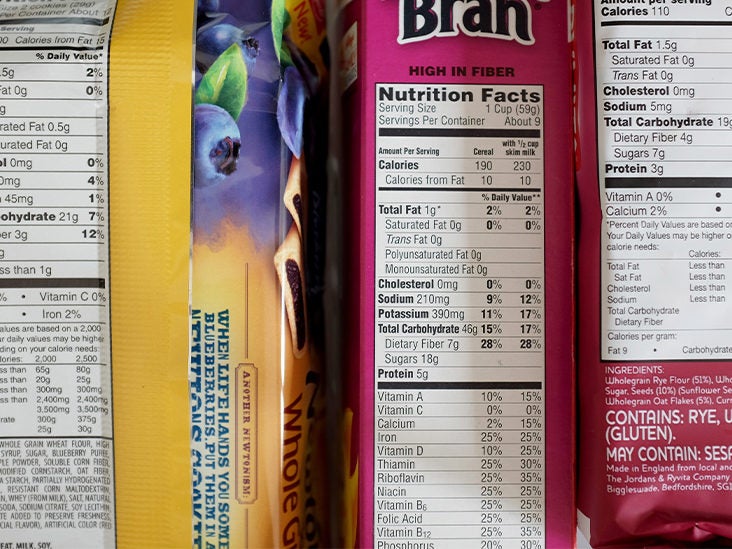


:format(jpeg)/cdn.vox-cdn.com/uploads/chorus_image/image/49640337/shutterstock_84910150.0.0.jpg)

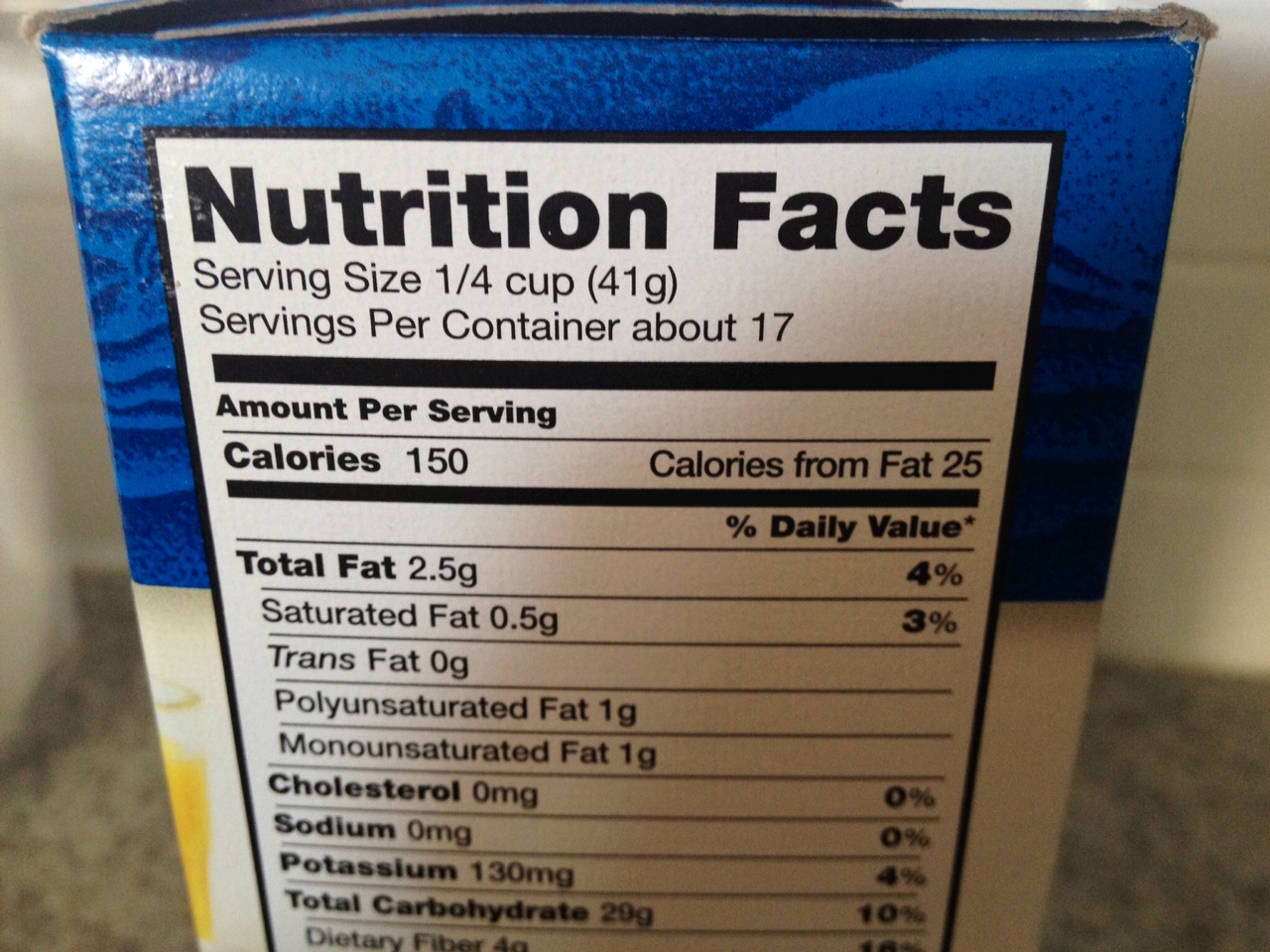

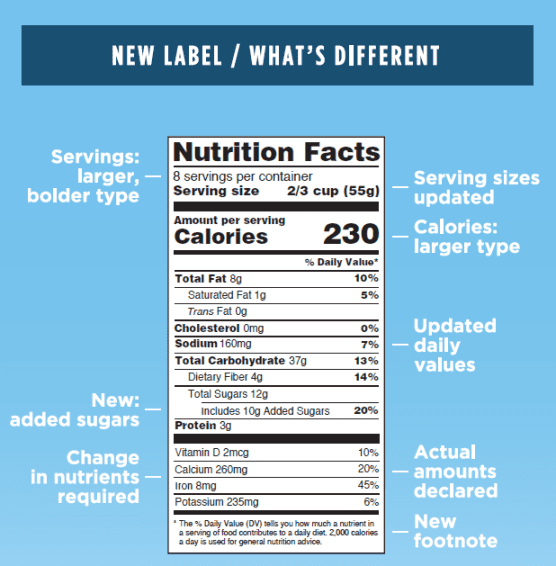

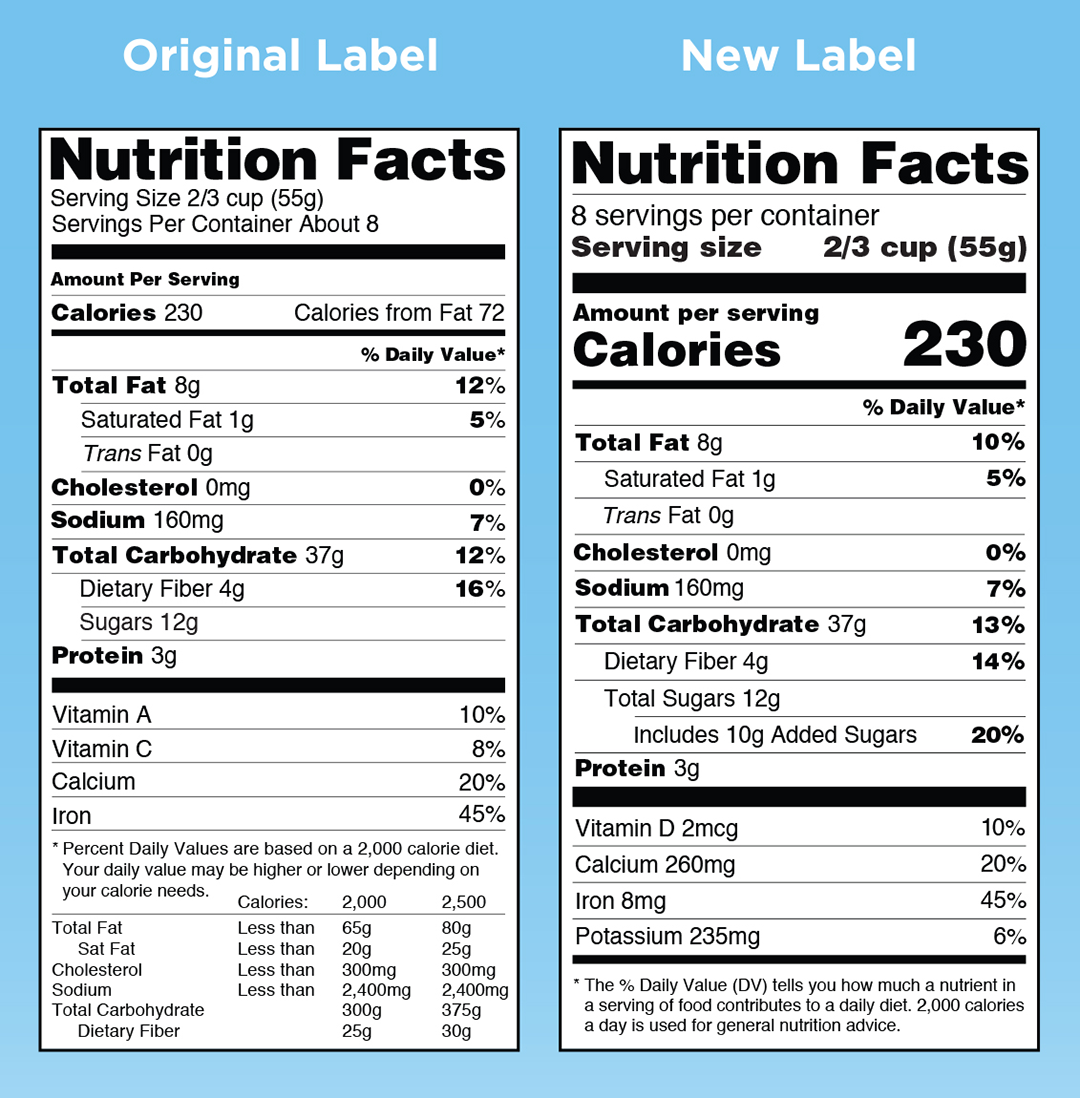
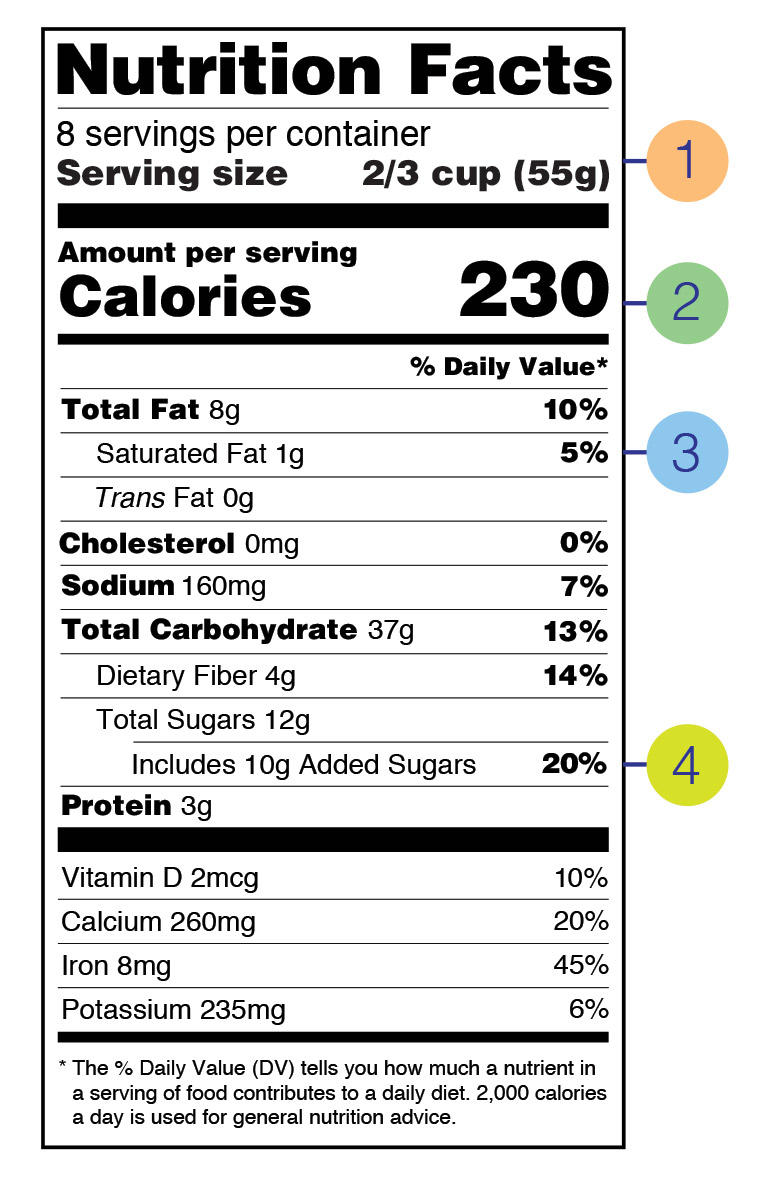
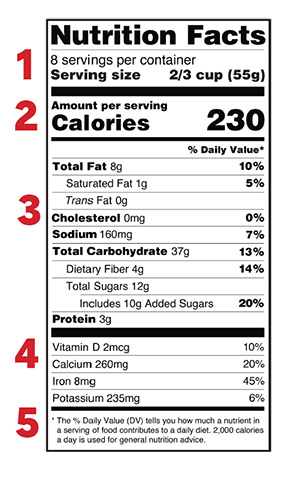

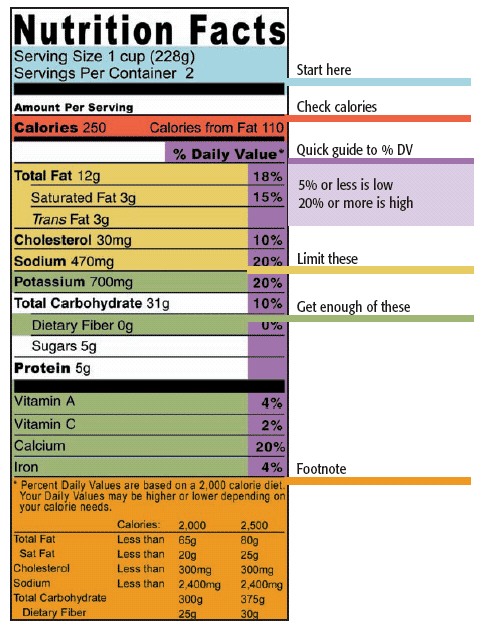

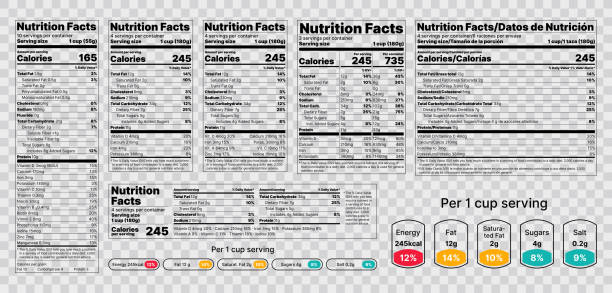

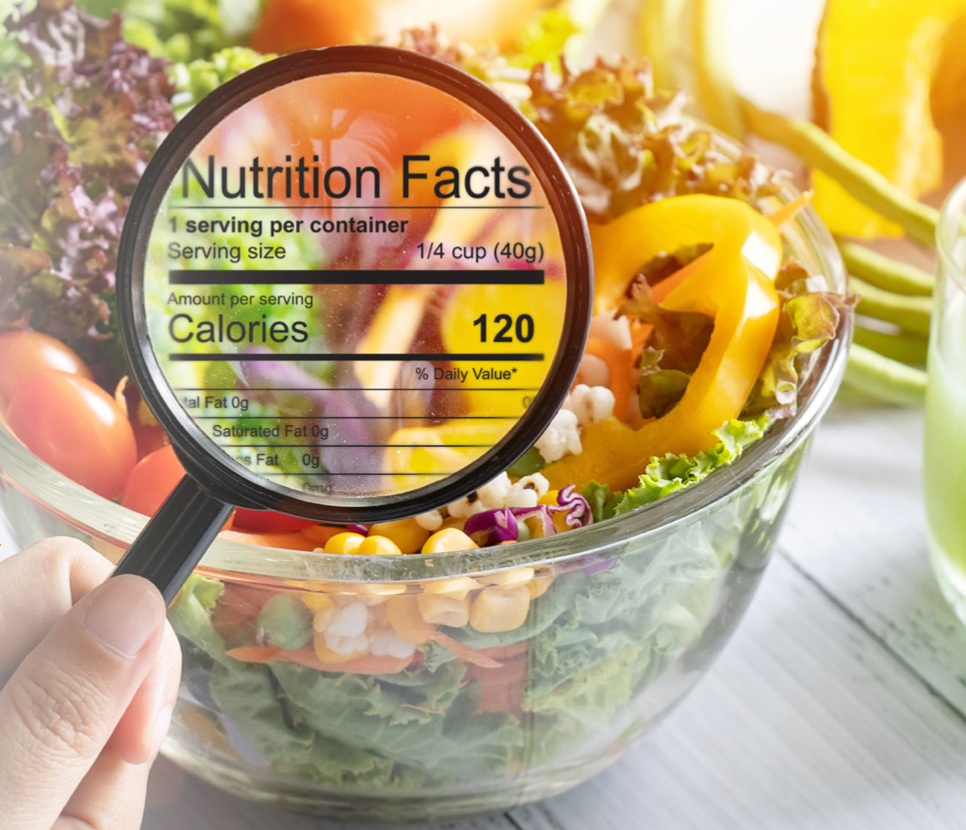
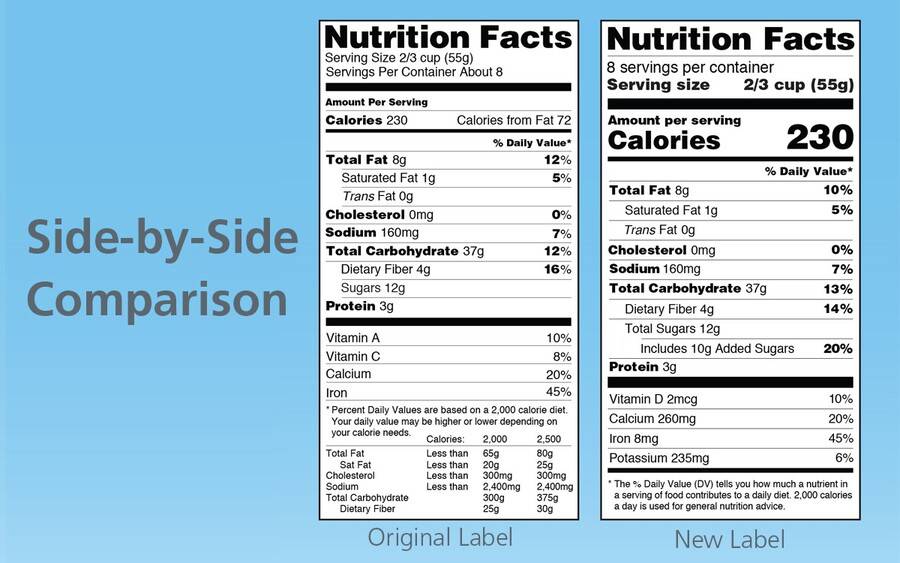



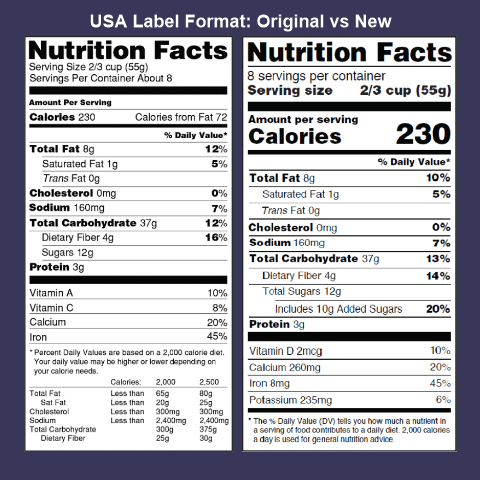
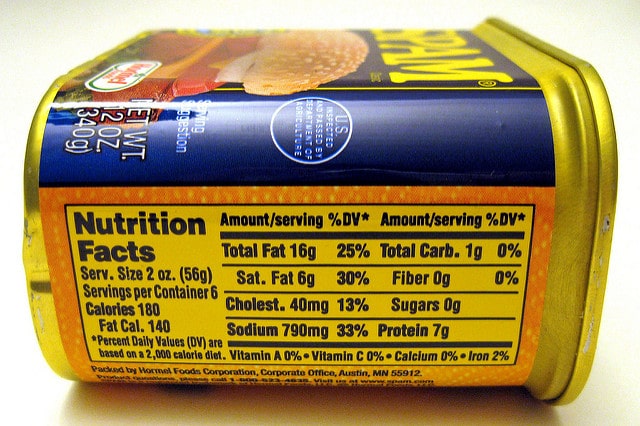





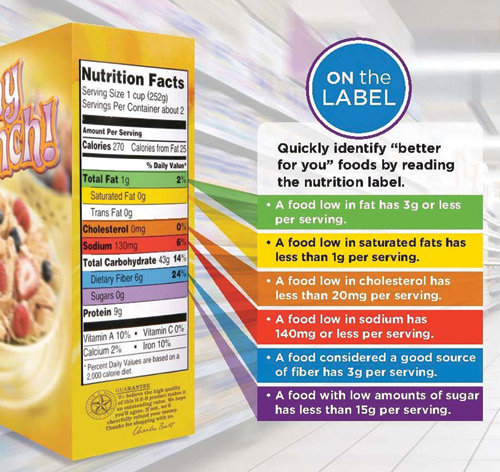
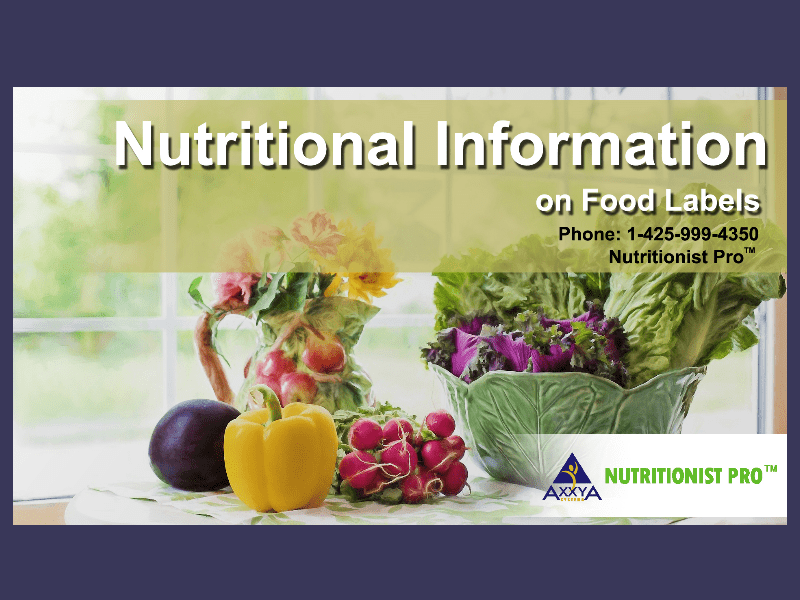
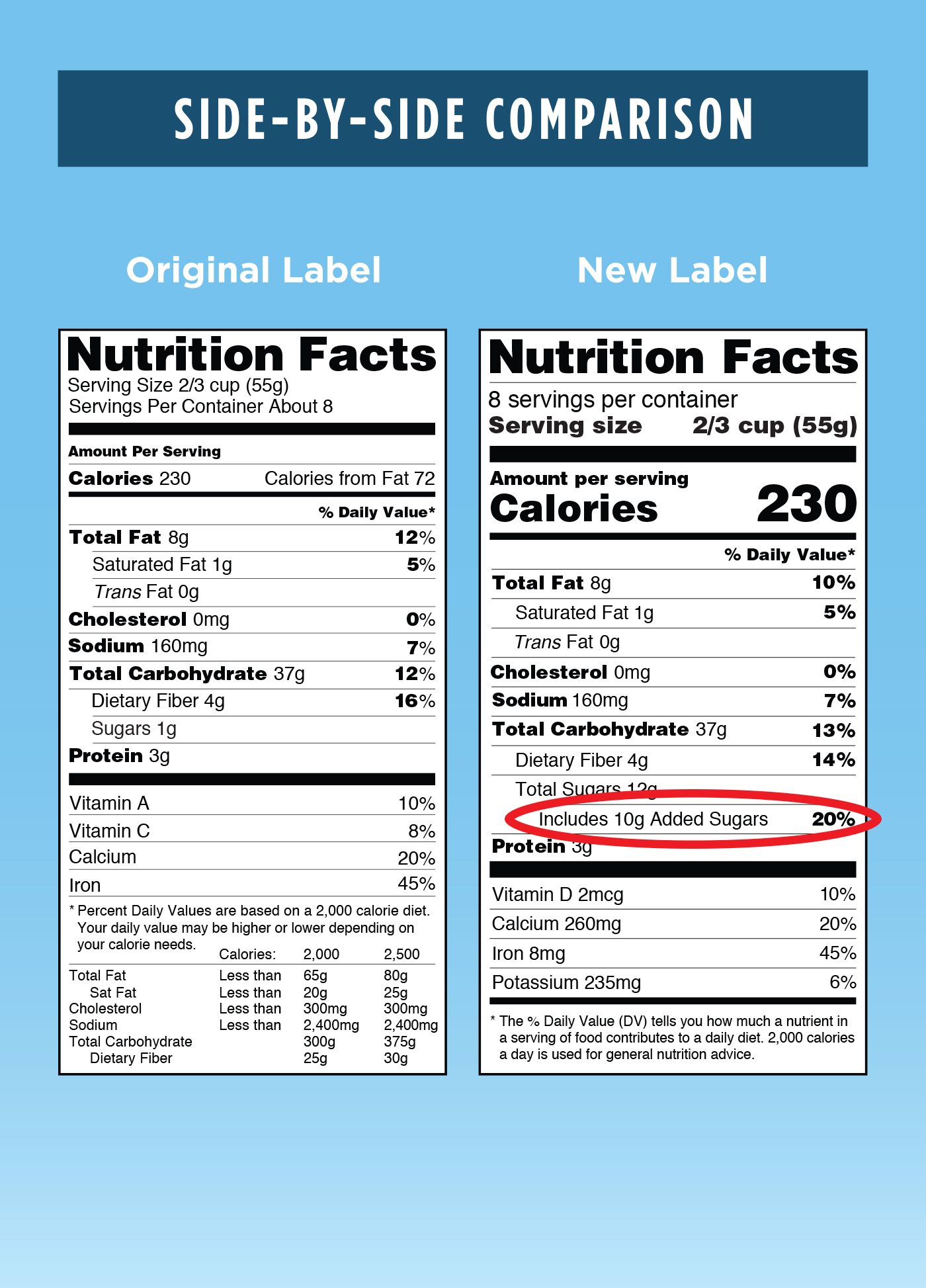

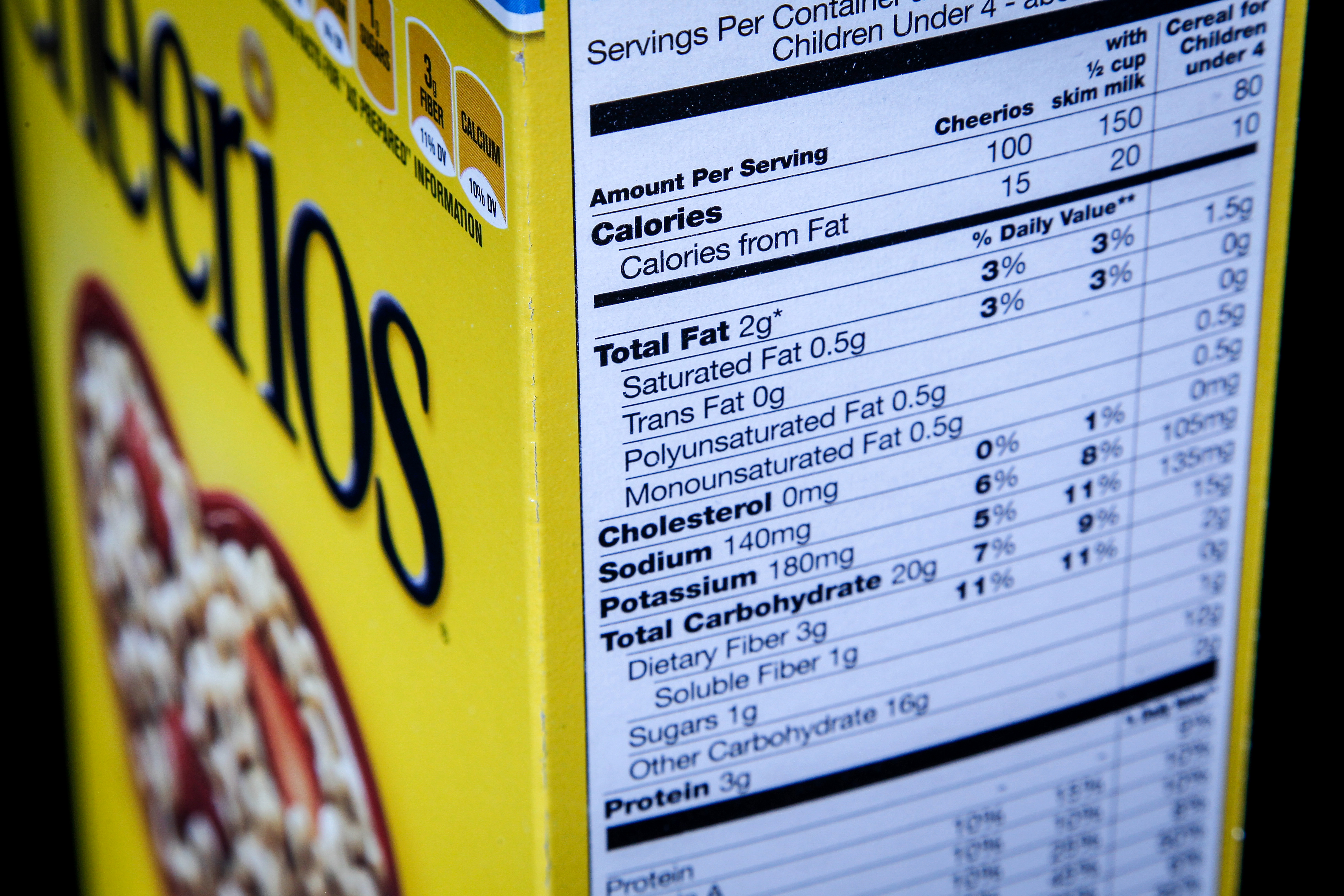

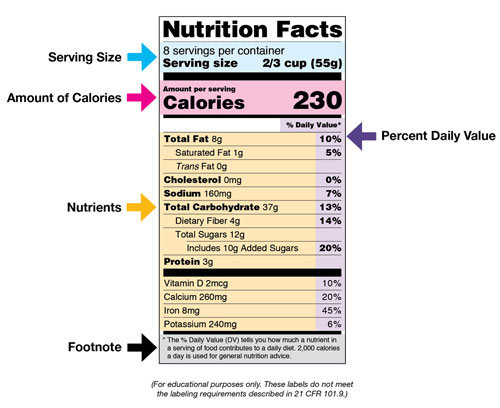

Post a Comment for "39 food labels nutrition information"